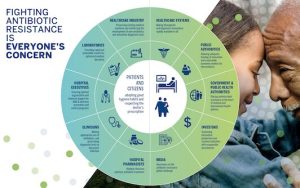Elevating the standard of care through accredited continuous education in nursing

The pace of change in Canadian healthcare is fierce, and nursing continuing education and training must keep pace to keep standards of care high. As highly-skilled professionals, nurses are trained to perform in varied workplace settings. Their multifaceted roles make them incredibly versatile, able to adapt to different health-care settings and evolving patient needs. Their expertise in coordinating care, managing complex situations, and applying critical thinking skills ensures that patients receive comprehensive, culturally competent care. Continuing education supports nurses in their professional growth and career advancement while fostering a culture of lifelong learning within the profession.
To help maintain the significant value that good continuing education programs offer to the profession, accreditation of continuing education programs for nurses is crucial to ensure Canada’s nurses have access to the relevant, high-quality development opportunities they need to advance their professional practice.
Continuing education accreditation from the Canadian Nurses Association (CNA) provides nurses with a clear pathway to identify high-quality courses, ensuring their time and resources are well-invested in advancing their knowledge and skills. The process of accreditation provides an impartial evaluation that external organizations conduct to assess educational programs and affirm the currency, relevancy, and high-quality design. With the mark of accreditation, continuing education providers can signal their commitment to excellence, providing nurses an assurance of the value of their professional development.
Accreditation bodies like the Canadian Nurses Association assess nursing education programs to ensure the program meets national nursing standards. As the mark of quality, CNA Accreditation ensures nurses can readily find continuing education that meets national competencies and standards, which translates into safe, effective, and high-quality care for
patients.
CNA is Canada’s only national accrediting body dedicated to the assessment of continuing education for nurses. These accredited courses, programs and exams offer a wide range of educational opportunities, from one hour self-paced courses to over 500 hours of instructor-led graduate certificates and micro-credential programs. Through the two-year cyclical CNA Accreditation process, continuing education providers must keep pace with current evidence-based practices and the latest knowledge. By providing a diverse range of accredited courses, programs, and examinations, CNA supports nurses in their career journey across different practice settings and specialties.
In a survey conducted in the summer of 2023 by the Canadian Nurses Association, 75% of nurses responding to the survey and aware of accreditation said that they preferred CNA-accredited programs whenever possible. Accredited continuing education providers agree that nurses have confidence their CNA-accredited courses and programs because they have been rigorously reviewed to meet the highest standards of quality and relevance.
“CNA Accreditation acknowledges the unwavering dedication of nurses. By ensuring nurses are equipped with the latest evidence and best practices in accredited continuing education programs, CNA recognizes the pivotal role of Canada’s nurses in fostering a culture of excellence within the profession and the best quality care and safety for patients,” explains CNA President Sylvain Brousseau RN, PhD, FFNMRCSI, FAAN.
From oncology, Indigenous health and medical aesthetic nursing courses to clinical specialty programs, CNA recognizes a broad range of comprehensive and focused continuing education for nurses to broaden their knowledge, stay current and specialize in a practice area. Here area few examples of the speciality programs:
• Indigenous health, one-hour accredited course, Inuusinni Aqqusaaqtara – My Journey from the Pauktuutit Inuit Women of Canada
• Leadership, one-hour accredited course, Clinical Nursing Leadership The Ontario Centres for Learning, Research and Innovation in Long-Term Care and Bruyère Research Institute
• Mental health, three-hour course, Suicide: Facing the Difficult Topic Together – Empowering Nurses, Instilling Hope in Patients from the Mental Health Commission of Canada (MHCC)
• Emergency nursing, 525-hour program, Regional Emergency Department Education Program (REDEP) from Interior Health
• Perioperative nursing, 535-hour program, Advanced Certificate in Perioperative Nursing Specialty from the British Columbia Institute of Technology (BCIT)
Keeping Canada’s nursing workforce at the forefront of health-care change and innovation makes accreditation more critical than ever. Nurse employers must ensure their nurses are competent, up-to-date, and capable of providing safe and effective patient care. Our nurses must have an assured way to acquire this expertise and demonstrate new competence in diverse practice areas to benefit all Canadians. Accredited continuing education is essential for nurses and their employers in supporting the skilled professionals we need in healthcare today.
Take a closer look at CNA-accredited continuing learning.
By Misty Fortier
Misty Fortier is Director of Credentialing Centre and Nursing Policy, Canadian Nursing Association.








